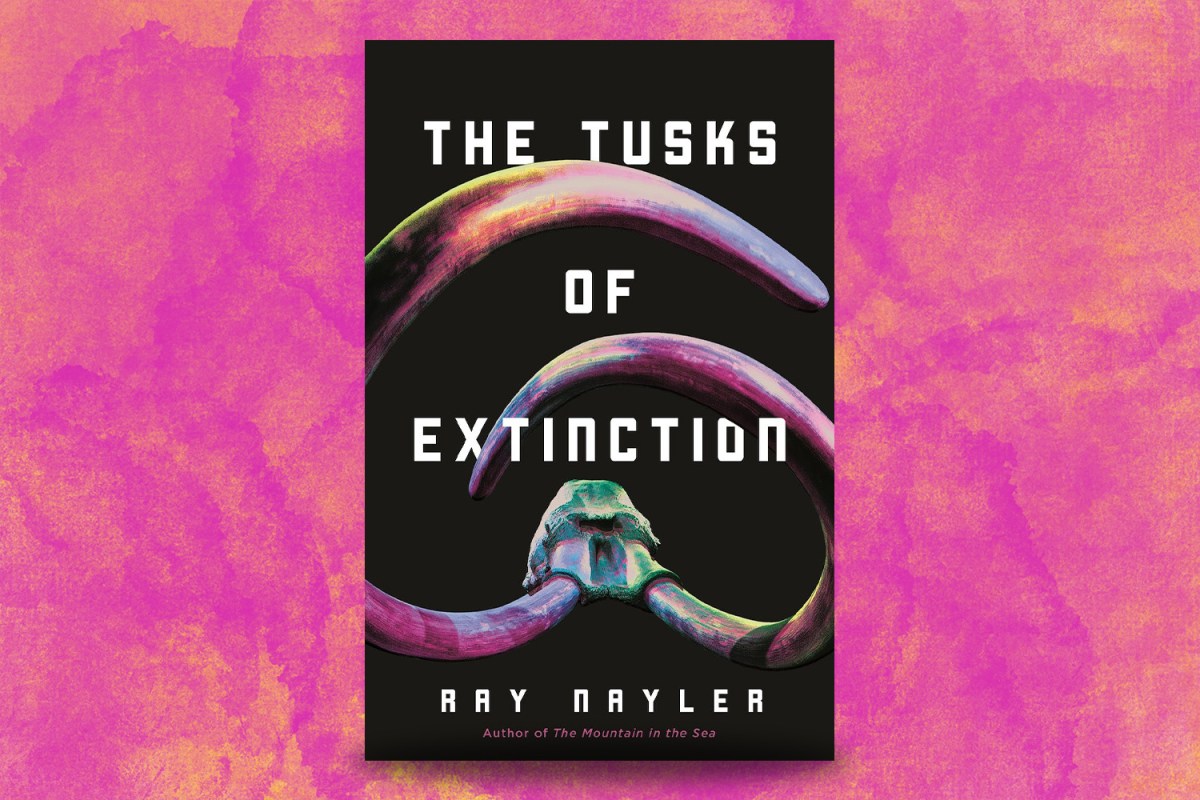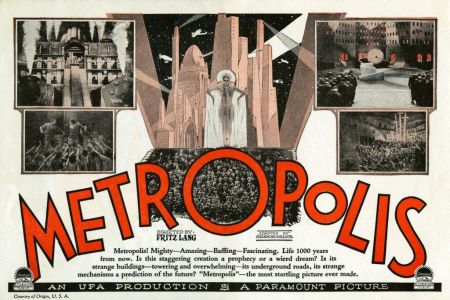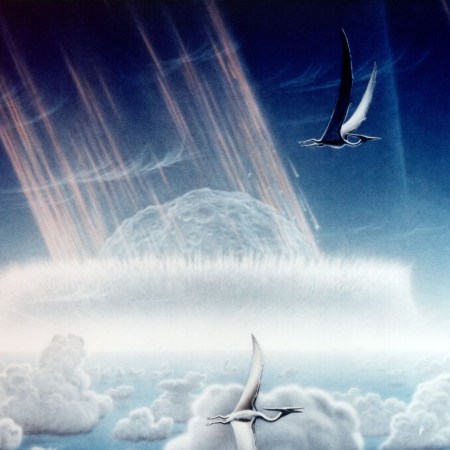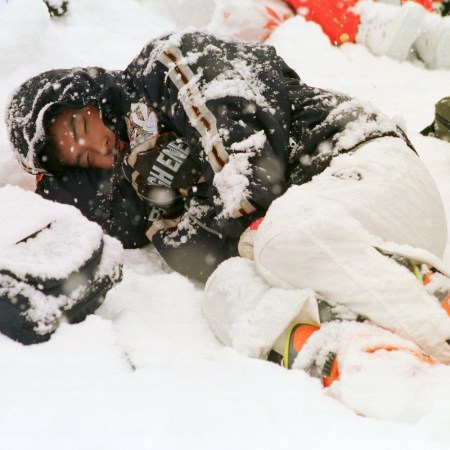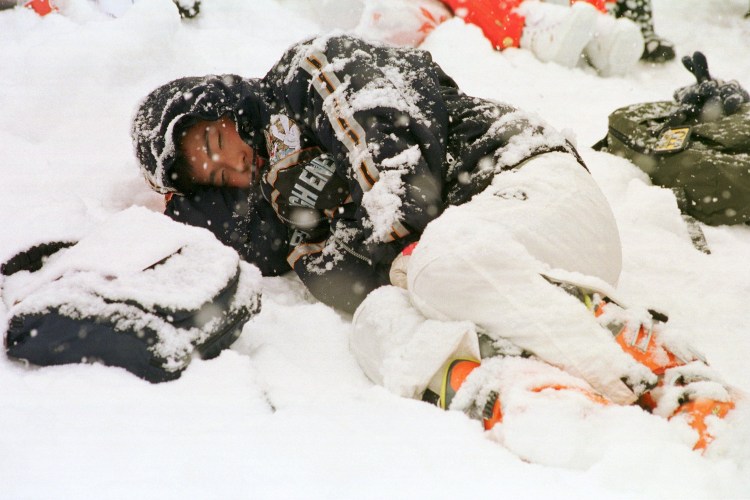The contemporary world has a conflicted relationship with extinction. On the one hand, the planet seems to be experiencing a new extinction event; on the other, scientists are also looking into ways to revive extinct species like the dodo. It’s into this milieu that author Ray Nayler has stepped — most recently, with the short novel The Tusks of Extinction, about the conflicted results of a long-gestating plans to bring back mammoths.
Blending compelling characters, fascinating science and resonant ethical debates, Nayler’s new novel fits neatly beside his earlier The Mountain in the Sea, a kind of first contact story in which no extraterrestrial beings appear. For both novels, Nayler drew on his experience living and working around the world, including stints in the U.S. Foreign Service and the Peace Corps.
InsideHook spoke with Nayler about the scientific and ethical questions that inform his work, just how plausible some of the breakthroughs featured in his work are and why flying cars might be overrated.
InsideHook: Not long ago, a Lawrence Wright piece in The New Yorker addressed questions of selfhood and sentience in non-human creatures. And that seems to be something that both of these books are reckoning with. What initially drew you to that as a subject matter? And when did you realize that this was something that you could turn into the stuff of compelling fiction?
Ray Nayler: I was always fascinated by communication and these questions of what intelligence is and how do we communicate? I was at UC Santa Cruz when it was really saturated in literature theory, semiotics and post-structuralist questions about meaning and things like that. At some point I encountered this subject of bio-semiotics, which envisions life as a system of communicative activities — within the cell, between cells, at the level of minds, in between creatures and at the ecosystem level.
The more I started thinking about this question, the more I realized that there’s really something fascinating about our inability to picture what the intelligence of animals is. There’s this way in which we see ourselves as being on a completely different plane from other species on the planet, but then we’re also really aware that there’s this deep kind of ingrained intelligence in all these other animals. We just fundamentally can’t understand how we’re supposed to approach these things.
I give this example with the octopus as a metaphor. Imagine if you, as a human being, just woke up with all of your adult capacities, but completely alone in a forest, where everything in the forest was basically trying to kill you, and you only had two years to figure out what life was and what to do with all this, but you would never probably meet another person until you mated, and then shortly after mating you would die. That’s the experience of an octopus. An octopus comes into being alone, without any intergenerational knowledge and manages to often be really successful in its environment, learning all these creative ways of hunting other animals and of surviving being hunted. It’s really fascinating, and I think there’s just this way in which we are unable to comprehend the levels of intelligence that the animals have precisely because they’re so different.
Leading from that, I started thinking, “What if we had a first contact kind of story where we could explore some of those issues in a very realistic way?” My problem with first contact stories was always that it seemed like they took a lot of shortcuts in communication. Actually communicating with an alien species would be extremely difficult — and we actually can prove that it would be extremely difficult because we have tons of alien species on this planet who we can’t communicate with.
We know that whales and dolphins are using something like a language, but we’ve been spending decades trying to understand it, and we don’t. We know that crows are communicating in really complex ways, but we don’t understand what the heck is going on there. So it’s clear to me that this is a hard problem, not a soft or an easy one, and I wanted to see a book that really dealt with that, and so I wrote [The Mountain in the Sea] because I just felt like it just didn’t exist. And I wanted to write something that hewed really close to the science that we have, but that was still inventive and not afraid to dive into the big questions.
Was the process similar for The Tusks of Extinction as far as the research and the thematic background?
I read a book that was really fascinating called Evolution in Four Dimensions. It’s by Eva Jablonka, and it discusses all these different ways in which evolution operates beyond just genetics — cultural evolution and epigenetic evolution and all the ways that we are informed by our environment. One of the things it talks about is this idea of embodiment and how the sensory apparatus that we have and our way of moving through the world really inform the way the world looks to us and how our minds work.
I thought that was really a sort of subset of some of the things I had been looking at in The Mountain in the Sea that I would like to delve into a little bit deeper, animal culture and the embodiment of meaning, and I thought that The Tusks of Extinction would be a really good way to do that.
I came up with a book that would help me explore my own obsession, and then I also had some — I wouldn’t call it like PTSD or anything — but let’s just say I had some leftover rage from having dealt with elephant poaching and rhino horn trafficking when I was in Vietnam, and I wanted a place to put that as well. Those two things fused together and became The Tusks of Extinction. I felt I would be able to do both, explore that embodiment of meaning and animal cultures and then also address some of these real-life issues.
As someone who does not necessarily know a lot about elephants or mammoths, I was unfamiliar with the Jacobson’s organ, which shows up in the first chapter of The Tusks of Extinction. Could you talk a little bit about sort of how that affects how the mammoths in this book perceive the world?
This is all highly theoretical, and we’re surmising how their minds work from what we’re observing externally from their behavior, but what they have is this kind of organ in the top of their mouth that allows them to, in a really sophisticated way, view the world via taste. And when you see elephants do this, they will pick things up and they will put them onto the top of their mouth and touch them to this organ and then they will stand there, clearly engaged in some kind of a mental activity that looks — externally, at least — like remembering, swaying back and forth. They really look like they’re thinking deeply about what they have encountered.
They’ll especially do this with the dung of an elephant that they know. They’ll probably be able to recall this elephant very clearly through this organ. I think that we’ve had this cultural idea for a long time of elephants as having these wonderful memories — and I think that that cultural idea has not come from nothing. It probably comes from people’s lived interactions with elephants.
Elephants are an animal that even people in what we think of as the West were intimately involved with by the time of the late Roman Empire. Elephants were used in armies. They were quite often used as cavalry. People had experience with them. There were elephants even in as far as Germany. This is an animal that human beings have been interacting with for a long time.
If we feel that they have some extensive memories, that’s probably because our experience with them has shown us that they remember things quite well. Sometimes we dismiss things as intuitive or mythical that may just come from long periods of human experience. We forget things like the fact that science didn’t exist until quite recently as a method for learning things, but that people have been scientific since probably the outset of humanity in the way of experimenting with things, seeing how they operate in the world, observing things and learning from them and passing knowledge to one another.
My feeling was that this was a way of scientifically exploring things that we human beings have been obsessed with by elephants for a long time, like memory and that kind of thing. Being able to reinterpret that through this human frame, I thought would be a really interesting thing, too.
When I read about contemporary efforts to bring back extinct animals, mammoths tend to be at the top of the list, though I’ve also read about a project to bring back the dodo recently. For The Tusks of Extinction, how much were you inspired by current science as opposed to using the futuristic setting to make some technological leaps?
As a writer, I have this tendency to put myself in as small of a box as I possibly can and really force myself to work with it. The purpose of my research, quite often, is to make sure that I’m hewing as close to reality as I can. And I think you find that the methods for de-extinction that are in The Tusks of Extinction are things that are being worked on right now, that people are actually doing or are about to do or have theorized could be done or have good evidence that they could be done.
I tried to stick really close to that, but I have to say that in many ways I feel like de-extinction wasn’t that interesting to me until I found out that you couldn’t really do it. That, in fact, you could never bring the mammoth back, you could only bring back this manipulated species that looked like and may have been able to sort of act like a mammoth, but wasn’t truly a mammoth because of the way that de-extinction would really work. You can’t retrieve the whole genome; instead, you’re going to be mixing things in.
I thought that was really interesting, this idea of an animal that wouldn’t know how to be what it was supposed to be and wouldn’t necessarily know how to live in the niche that we had recreated for it or in any niche at all, because it really had no cultural memory. How could a human being that was an expert in that species be able to help it restore some of that cultural memory? That’s when it got really interesting for me.
I loved Jurassic Park when I was a kid and the way that I love a book is to constantly return to the holes that are in it and sort of see what I might do with it. This book’s roots are clearly in Jurassic Park, right? I wanted to tell a story that makes reference to that and I wanted to tell it from a very different perspective and turn some of those precepts upside down. I thought this would be an interesting way to do it. But I also wanted to look at Eva Jablonka’s theories about evolution and evolution being quite often cultural, especially in what we would call — I hate to use these like terms — higher animals.
I would say they’re not higher, but there are animals that have culture and not all animals necessarily would have culture, but there are many, many animals that do. Elephants certainly do, which means that the things that they’re doing in life are not instinctual. Many of the activities that they’re taking part in are learned from their parents and learned from the elephants around them. And if you had an elephant that had never met another elephant before, it wouldn’t really partake of elephant culture and it wouldn’t behave in the way that we are used to elephants behaving.
This is a deep cut, but since you brought up Jurassic Park and books you’d grown up reading, I was curious, did you ever read any of the David Brin Uplift books that came out in the 1980s and 1990s?
No, I didn’t.
I remember reading them when I was a teenager — though in retrospect, I have no idea if the science in those books holds up or not.
I mean, the science in Jurassic Park was really good at the time. And then we learned that there were lots of problems with it, but it was based on really good science. A lot of the things in Jurassic Park are the stuff you would use to bring animals back. It’s not so far-fetched. What we really just learned was that DNA that had been around for that long would be far more damaged. You can’t just pull it out of a mosquito with a syringe and use it. It needs to be massively reconstructed, gaps need to be filled, et cetera. But in general, that science was really good for the time.
What I purposefully did not do when I set out to write The Tusks of Extinction, is — I did not reread Jurassic Park. I left it where it was as a piece of cultural memory, very much mixed up with the film. I remember reading it as a kid and just absolutely loving it, tearing through it maybe in like a single sitting or a couple of sittings and thinking that it was fantastic. It’s the dream of every writer to write a book that opens up an entire new field before itself, right? Where so many books that come after will have to reckon with that book as their, as their primary reference point. And I do love that about Jurassic Park. It created this entire sub-genre of science fiction. And it may not have been the first book to do all the things that it did, but it really did open up a huge swath of territory.
One of the most interesting aspects of The Tusks of Extinction for me was the reminder that some of these de-extinction projects will take longer than a human lifetime to bring to fruition.
Yeah. You’re dealing with a creature that has a pregnancy that lasts for years. This is an animal that has an extraordinarily long lifespan and generational knowledge needs to be built up over a huge amount of time. I also think that one of our big mistakes that we make as a culture is always thinking that there are going to be these enormous technological changes that are just around the corner and that they’re going to have these effects on society that are just completely staggering. We keep thinking that, and then we keep wondering where our flying cars are. We forget that culture has a lot of built-in limitations; you can have a flying car, but never use it because of all the other things that might happen if everyone had a flying car. All the terrible things.
This is a bit of a digression, but I have a series of stories called “The Disintegration Loops” series. The second one is “A Rocket for Dimitrios.” I just wrote the third one, which will come out pretty soon. Every single one of them begins with a flying car crashing because it’s a world that has flying cars as a kind of tribute to this quote by Paul Virilio, where he said, “The invention of the ship was also the invention of the shipwreck.”
I’m assuming that series takes its title from the William Basinski composition?
Yes, it is. It was written in reference to that, and while listening to that. It’s basically about this alternate mid-20th century where the United States discovered a flying saucer in 1938, and then used that technology to single-handedly win World War II and then also put down Communism and all these other things and become this big global unilateral power. And then how that’s how that starts to fall apart.
Classic Detective Stories and Influential Science Fiction Entered the Public Domain This Year
Turns out 1927 was a big year for creative workDo these two books share a future history? There seemed to be a reference to something in The Tusks of Extinction that’s related to a subplot in The Mountain in the Sea.
The way that I like to write is to think of those as being closely related worlds, but not the same place. I would invite readers to think of them as being referential to one another. When I put a reference in there that you’re clearly supposed to pick up on, it’s because I am trying to sort of draw some parallels between them — but I think of them more as alternate versions of a future rather than the same future.
You brought this up a little earlier when you talked about your experience with poaching, but — to what extent have both of these books been informed by the work that you’ve done, the places you’ve traveled and the places you’ve lived around the world? Do you think you would have written the same books if you didn’t have that experience?
A huge part of my life has been the fact that I’ve lived half of it outside of the U.S. and in places that people from here don’t normally live — all the countries that end in “stan,” Russia as well. And then Azerbaijan and Kosovo; Vietnam was a bit of an outlier for me and actually for that reason, maybe even left more of an impression.
I don’t think that these books would would exist. I have a period of writing before I was overseas where I was writing crime fiction when I was in my early twenties. It’s a very different kind of writing because it really isn’t informed by any of this. It’s a very American writing — and I’m not faulting it. It’s just very much cemented in a certain kind of place and viewpoint.
I think that one of the great gifts of going overseas and living outside of your country, or any country, for a long time is that — it’s not that you learn anything specific about a country. I find the more you live there, the less you can say intelligibly about the place. You realize that they’re just so complex and there’s no such thing as a national culture or any of these kind of falsehoods that we put forward.
One of the things you really learn is just how arbitrary the way things are structured is. And maybe that was the key to my starting to write science fiction, because in many ways, I feel like science fiction is this genre that’s asking the fundamental question of, “If you change this, then what happens?” And then, “What if this happened, then what happens?” And that’s a question that’s being actually articulated right now all over the world by many different ways of structuring human existence and human interaction with the environment. All over the world, “what if?” questions are being asked about what has value for human beings, what should have value and all of these things by other human cultures.
I think I’m able to draw from that kind of experience of being outside those cultures, observing many different ways of doing things. That kind of inspires my reconstructions and the cultures that I build. I can almost certainly say that I wouldn’t have had it in me to be a science fiction writer without my experience abroad. I probably would have remained a writer of mysteries and hard-boiled crime fiction, which I think I could do in situ in the U.S. really well. But no, these books certainly wouldn’t exist without the real experience. There’s just no way.
This article appeared in an InsideHook newsletter. Sign up for free to get more on travel, wellness, style, drinking, and culture.
